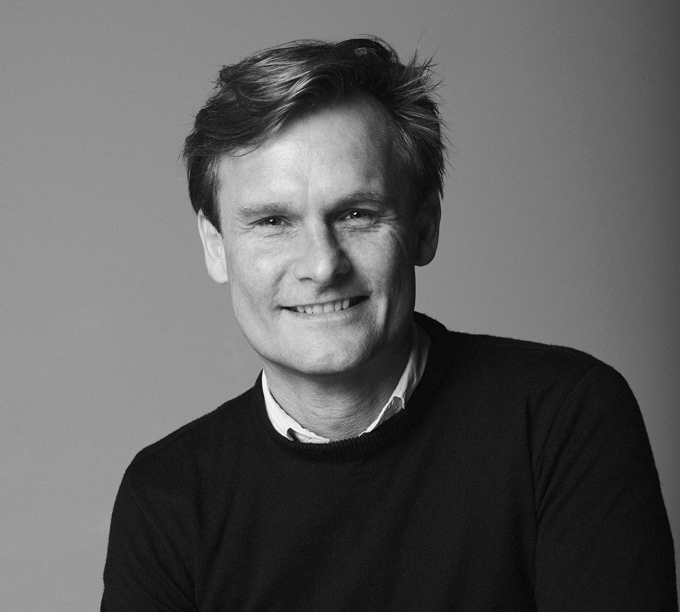Peter Holme Jensen, Aquaporin CEO “After spending more than a decade on technology development, testing in space with NASA and ESA, and winning the European Inventor Award by the European Patent Office in Munich, we are now focused on getting our technology and solutions out to consumers and the industry.”
Aquaporin, A Danish water technology company that is committed to revolutionizing water treatment by combining biotech techniques with the latest technology, entered the Turkish market in September 2020. Operating under a limited company, Nordic Foreign Trade, the water treatment technology of Aquaporin’s product ZERO is based on research which was awarded the Nobel prize in 2003. ZERO, the only water treatment device in the world with American FDA approval, can save 10 liters of water that is used to produce a plastic bottle when a liter of tap water is treated with ZERO, says Peter Holme Jensen, CEO.
Aquaporin’s ZERO is for residential use only, but Jensen says they are planning to introduce other membrane technologies at some point in the medium and long term. “However,” he says, “right now drinking water has our highest priority in the Turkish market.” The company is also engaged in ongoing talks with some major Turkish companies for technology transfer into their existing product portfolio and some new innovation projects to be announced soon.
Household drinking water is a billion-dollar industry, according to Jensen. “The market for point of use water purifiers alone has a compound annual growth rate of 10%,” he says adding that Aquaporin is currently developing a water bar product for institutions, which will allow the company to enter the industrial market in waste water in the coming years.
Aquaporin’s water treatment technology is based on the way nature filters water. The company has developed the Aquaporin Inside® technology over the last 15 years and is in the early phases of introducing drinking water solutions into selected markets, like Turkey. “If all people and households in Istanbul implemented our technology, the total savings, with a rough calculation, would be 10 liters of water to be used to produce a plastic bottle for one-liter drinking water. In 2020, the annual consumption per person is estimated to be 152 litres, 73 litres of PET and glass bottles and 79 litres of damacanas (19-liter bottles). So, we are talking billions of liters in water savings every year, especially when Turkey’s 83.2 million population is considered.”
Aquaporin entered the Turkish market together with its business partner Nordic in September 2020, with the support of the Trade Council of the Royal Danish Consulate General in Istanbul with their insider experience in the market. There is a wide range of competitors in the water purification segment, Jensen says. “But no one has the Aquaporin protein incorporated in the membrane, which is at its current stage in the top range in terms of quality and performance globally. We are confident we have created a new standard of membrane technology. We are not trying to adapt to our competitors, but we focus on our own core strength and uniqueness – the Aquaporin Inside® technology.”
Aquaporin produces and develops reverse osmosis (RO) and forward osmosis (FO) technologies in drinking water for residential and municipal use, industrial water waste and hollow fibers for the food and beverage sector and mobile dialysis units, which is still under development.
The company’s turnover in 2019 was close to DKK 6m (EUR 8m). Jensen notes that they made a lot of progress in technology development and product launches in 2020. “However, being a global company, our business development activities also suffered from pandemic lockdowns and travel restrictions,” he says adding that they look forward to are more normalized world, like everyone else.
A filter made for astronauts to provide drinking water
Every drop of moisture on the International Space Station (ISS), from humidity to urine, has to be filtered and reused. But the current system is very heavy, has to be replaced every 90 days, and fails to filter out certain contaminants, according to NASA. Aquaporin designed its water-purification system originally for the ISS. “It is essentially the mechanism that allows water to cross the cell membrane of living cells,” says Peter Holme Jensen, CEO of Aquaporin A.S. “In nature, these proteins allow plant roots to absorb water from the soil, and let the two human kidneys together filter about 45 gallons of fluid per day.” Having tested it in space, NASA is considering replacing its current system with Aquaporin’s. “After having spent more than a decade on technology development, testing in space with NASA and ESA, being awarded the European Inventor Award by the European Patent Office in Munich, we are now focused on getting our technology and solutions out to consumers and the industry,” says Jensen. “We can grow the business and help one of the biggest challenges of our time – securing clean, safe and healthy drinking water for all.”










